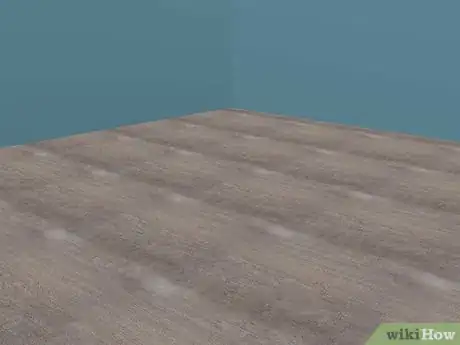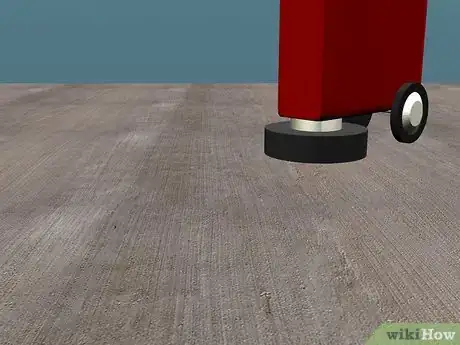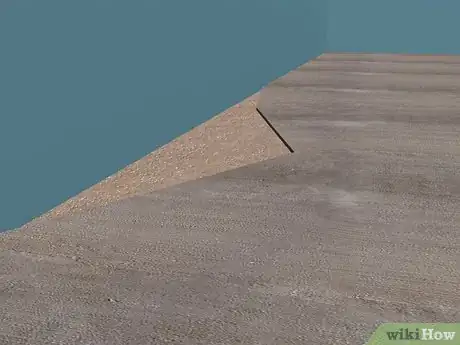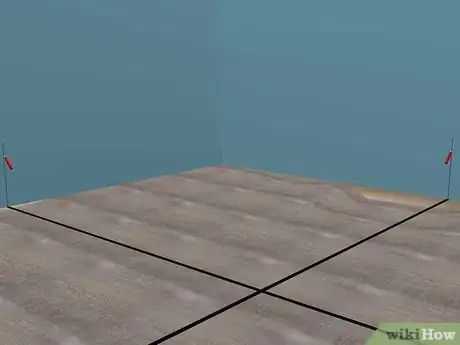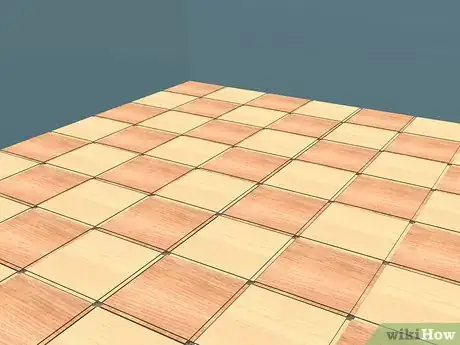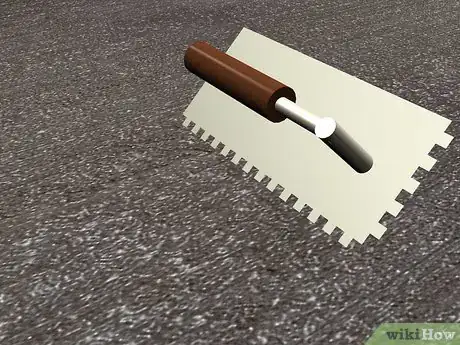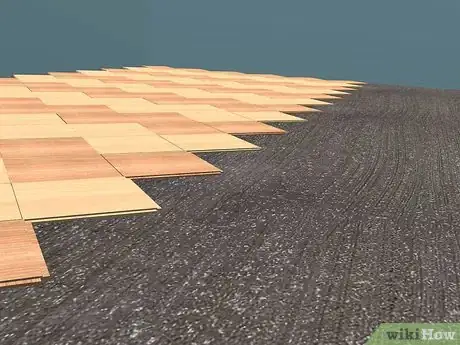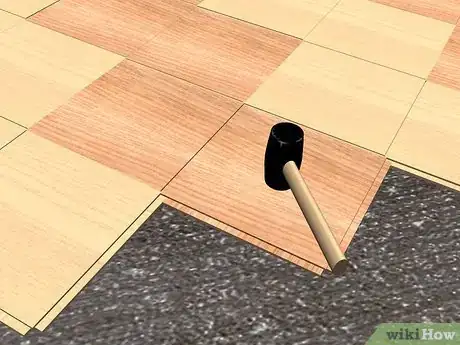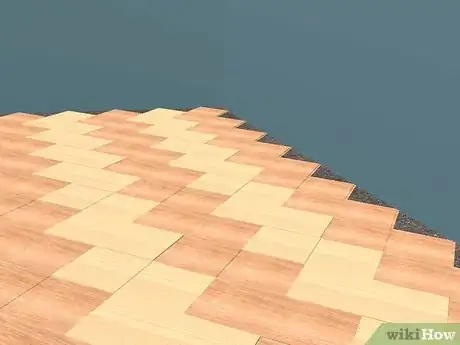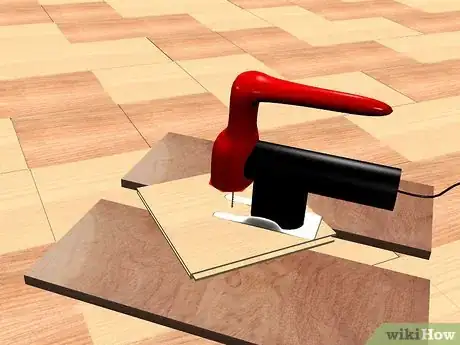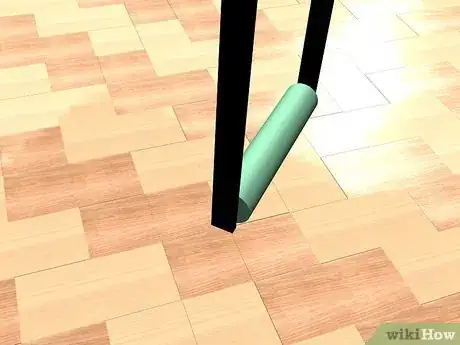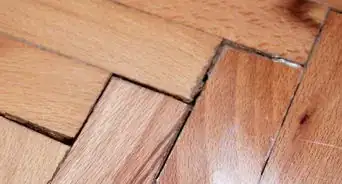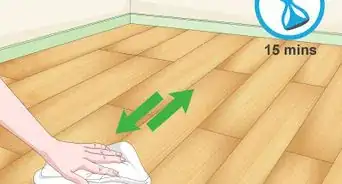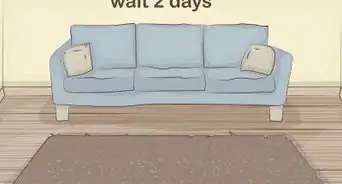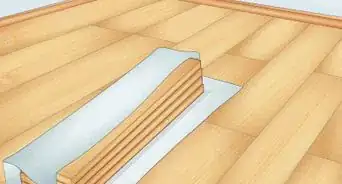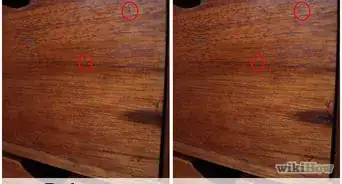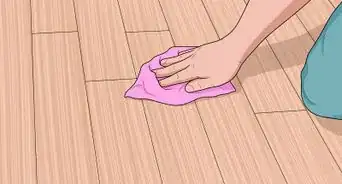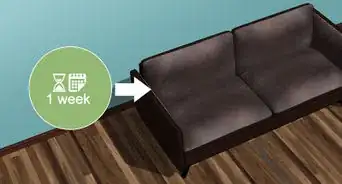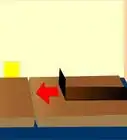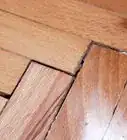X
wikiHow is a “wiki,” similar to Wikipedia, which means that many of our articles are co-written by multiple authors. To create this article, 12 people, some anonymous, worked to edit and improve it over time.
This article has been viewed 122,520 times.
Learn more...
Parquet flooring consists of inlaid wood tile squares with repeating patterns made from short strips of wood. The tiles are made from solid wood or laminated wood veneers and can be installed using flooring adhesive or nails. Available in a wide variety of colors and patterns, parquet tiles are a durable and relatively inexpensive flooring option that can enhance the appearance of any room's décor. This article explains how to install parquet properly.
Steps
Method 1
Method 1 of 2:
Preparing the Subfloor
-
1Clean the subfloor. Remove any paint, wax, sealants, adhesives, and debris. Be sure the subfloor is completely dry before beginning to install the parquet flooring.
-
2Level the subfloor. Use a belt sander to sand any high areas and/or fill any sunken areas with cement leveling compound.Advertisement
-
3Replace any damaged areas in the subfloor. The subfloor needs to be smooth and level to ensure the overlaid parquet floor is level.
-
4Tighten any loose areas of the subfloor.
Advertisement
Method 2
Method 2 of 2:
Installing Parquet Flooring
-
1Mark the center of each wall. Use a marker to indicate the center of each wall and draw straight chalk lines connecting opposite walls.
-
2Lay the parquet panels down on the floor. Start from the center point where the perpendicular chalk lines intersect out to the walls along each line.
- Do not apply adhesive yet. Adjust the lines if more than one-half of the last row of panels needs to be cut.
-
3Apply adhesive. Use a notched trowel held at a 45-degree angle to apply enough adhesive on the subfloor for the area to be covered by the first parquet panel. Lay the first panel, aligning it with the chalk lines.
-
4Add enough adhesive on the subfloor to lay the next 8 panels on both sides of the first panel.
-
5Align the flooring.
- Holding each parquet panel at a 45-degree angle, align the tongue-and-grooves between the new panel and the adjacent panel already laid on the subfloor and tap into place with a rubber mallet. One the panels are aligned, lay the new panel into the adhesive. Repeat until all 8 parquet panels have been laid.
-
6Repeat applying areas of adhesive and laying parquet panels until all except the last row of parquet panels have been laid.
-
7Measure and cut the last row of parquet panels using a jigsaw. Lay the last row of parquet panels.
-
8Set the parquet flooring firmly by rolling the newly laid panels with a 150-pound (68.04 kg) floor roller within a few hours of completing the installation.
Advertisement
Community Q&A
-
QuestionMy hot water heater leaked. Water is now under the parquet tiles. How can this be fixed?
 Community AnswerYou would need to take up the affected wood, dry or replace the subfloor, plywood, or concrete, and lay down new tiles.
Community AnswerYou would need to take up the affected wood, dry or replace the subfloor, plywood, or concrete, and lay down new tiles. -
QuestionWhat glue do I use on concrete?
 Community AnswerFevicol or a PVC solution can work. It gives good stability and can be applied using a brush or some hard material.
Community AnswerFevicol or a PVC solution can work. It gives good stability and can be applied using a brush or some hard material. -
QuestionCan I lay parquet flooring on wooden floor boards?
 Community AnswerYes, but make sure to lay them in the direction of the grain, otherwise you will eventually incur problems with cross directional movement.
Community AnswerYes, but make sure to lay them in the direction of the grain, otherwise you will eventually incur problems with cross directional movement.
Advertisement
Things You'll Need
- Tape measure
- Marker
- Chalk line
- Notched trowel
- Level
- Parquet flooring
- Flooring adhesive
- Jigsaw
- Rubber mallet
- 150-pound (68.04 kg) floor roller
- Putty knife
- Sander, if needed
- Cement leveling compound, if needed
About This Article
Advertisement
